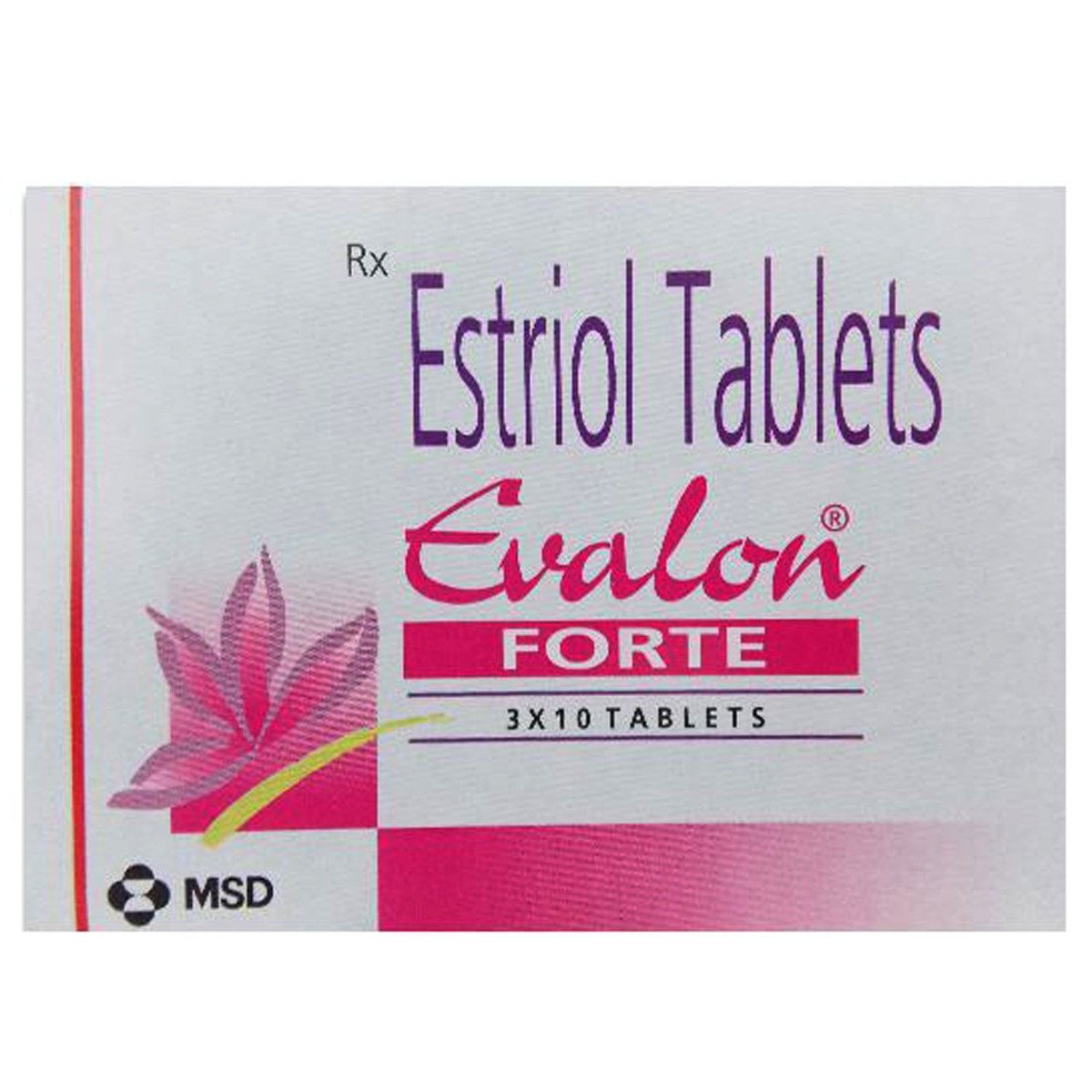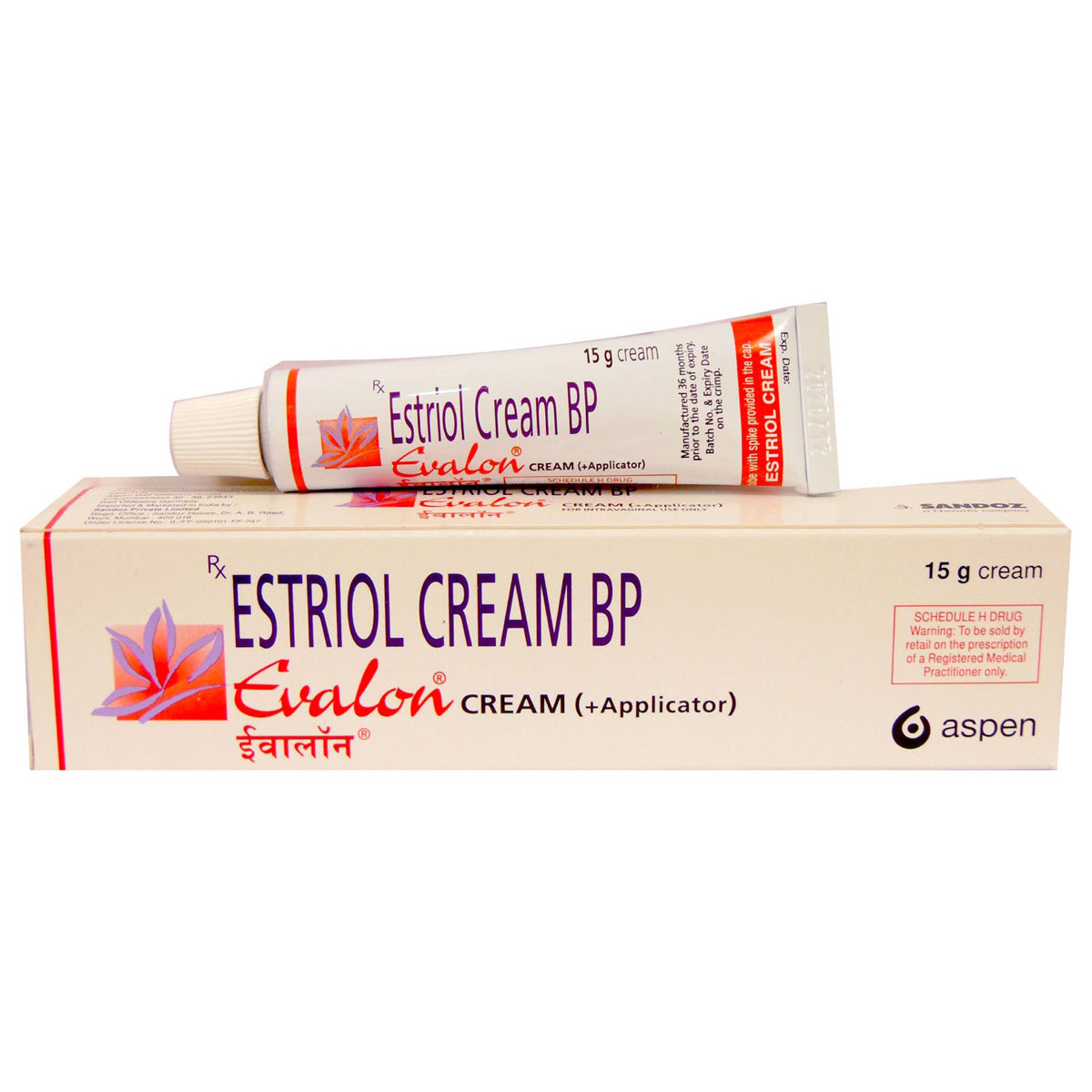Estriol
About Estriol
Estriol is used to relieve menopausal symptoms such as vaginal atrophy (vaginal dryness or irritation). It is used before/after vaginal surgery to help wound healing. Vaginal atrophy occurs due to a drop in the levels of oestrogen that naturally happens after menopause.
Estriol contains ‘estriol’, which works by replacing the oestrogen that is normally produced by the ovaries. Thus it provides relief from discomfort, dryness or irritation in the vagina.
In some cases, you may experience side effects such as itching, irritation of the skin around the vagina, swollen, tender, or painful breasts, headache, and nausea. Most of these side effects do not require medical attention. However, talk to your doctor if the side effects persist.
Avoid using Estriol if you are pregnant, planning for pregnancy or breastfeeding. Stop using Estriol and consult a doctor if you notice jaundice, a large rise in blood pressure, or migraine. Keep your doctor informed about your health condition and medicines to rule out any side effects.
Uses of Estriol
• Vaginal dryness: Estriol relieves vaginal dryness, itching, and burning caused by a lack of estrogen.
• Vaginal irritation: Estriol reduces urinary symptoms such as urgency and irritation.
• Restoration of Vaginal lining: Restores elasticity and thickness of the vaginal lining.
• Vaginal environment: Estriol helps normalize the vaginal environment, lowering the risk of urinary tract infections.
•Wound healing: Estriol is used before or after vaginal surgery to aid in wound healing.
Medicinal Benefits
- Estriol belongs to a group of medicines called hormone replacement therapy used to relieve menopausal symptoms such as vaginal atrophy (vaginal dryness or irritation).
- It is used before/after vaginal surgery to help wound healing.
- Estriol contains ‘estriol’, which replaces the oestrogen normally produced by the ovaries, helping relieve discomfort in the vagina, vaginal dryness or irritation.
Directions for Use
- Estriol is for vaginal use only.
- It is usually applied once daily at bedtime for up to 4 weeks or as prescribed by your doctor.
- Check the label for directions before using this medication.
- Remove the cap, screw the applicator onto the tube, and squeeze to fill it with cream. Lie down and gently insert the tip of the applicator deep into your vagina, and press the plunger to release the cream.
- After use, remove the applicator and wash it thoroughly with warm, soapy water.
Storage
Side Effects of Estriol
- Irritation or itching of the skin around the vagina
- Increased vaginal discharge, bleeding, or spotting
- Swollen, tender, or painful breasts
- Headache
- Nausea
- Flu-like symptoms
Drug Warnings
- Do not use Estriol if you are allergic to any of its contents.
- Avoid taking Estriol if you have/had breast cancer, endometrial cancer, unexplained vaginal bleeding, endometrial hyperplasia (excessive thickening of the womb lining), thrombosis, blood clotting disorder, heart attack, stroke, angina, or porphyria.
- Inform your doctor if you have fibroids inside the womb, endometriosis, risk of developing blood cancer or oestrogen-sensitive cancer, high blood pressure, liver disorder, gall stones, diabetes, migraines, immune system problems, blood clotting problems, asthma, epilepsy, otosclerosis (an inherited disorder that affects hearing), fluid retention due to kidney/cardiac problems or hepatitis C.
- Estriol is not recommended for use in children.
- Let your doctor know if you are pregnant or breastfeeding.
Drug Interactions
Drug-Drug Interactions: Estriol may have interaction with anti-viral (ombitasvir, paritaprevir, dasabuvir, nevirapine, efavirenz, ritonavir, nelfinavir), anti-fungal (griseofulvin), anti-convulsant (barbiturates, hydantoins, carbamazepine), skeletal muscle relaxant (succinylcholine), xanthine (theophylline), antibiotic (troleandomycin), and corticosteroids. Inform your doctor if you are taking St. John’s wort (a herbal supplement to treat depression).
Drug-Food Interactions: No interactions found/established.
Drug-Disease Interactions: Inform your doctor if you have breast cancer, endometrial cancer, unexplained vaginal bleeding, endometrial hyperplasia (excessive thickening of the womb lining), thrombosis, blood clotting disorder, heart attack, stroke, angina, or porphyria.
Drug-Drug Interactions Checker List:
Safety Advice

Alcohol
consult your doctorIt is not known if alcohol interacts with Estriol. Consult your doctor if you have any concerns.

Pregnancy
unsafeOnly postmenopausal women should use Estriol. If you are pregnant or may become pregnant, avoid using Estriol since it may harm your foetus. If you become pregnant while using this medicine, consult your doctor immediately.

Breast Feeding
unsafeAvoid breastfeeding while on treatment with Estriol.

Driving
safe if prescribedEstriol has no effect on your ability to drive.

Liver
unsafeEstriol is not recommended for use if you have or have ever had liver conditions. Please discuss with your doctor regarding this.

Kidney
consult your doctorIf you have kidney problems, inform your doctor before taking Estriol. Discuss with your doctor for more information.

Children
unsafeEstriol is for use in post-menopausal women only and is not recommended for children.
Habit Forming
Diet & Lifestyle Advise
- Include foods such as soybeans, flax seeds, and soy products in the diet.
- Maintain a healthy weight by exercising regularly. Also, avoid exercising too much. Do it moderately.
- Avoid douching or using hygiene products containing fragrances, as they might further irritate the vagina.
- Drink plenty of water to stay hydrated. Try to limit alcohol and caffeine.
- Try to choose personnel care items that are pH balanced.
Special Advise
- Regular breast screening and regular check-ups whilst using Estriol are advised.
- Inform your doctor that you are using Estriol if you are due to have any surgery.
- Your doctor might advise you to stop using Estriol 4-6 weeks prior to the surgery to reduce the risk of a blood clot. Your doctor will decide when to start Estriol again.
Patients Concern
Disease/Condition Glossary
Vaginal atrophy: When women get older, the ovaries gradually produce less oestrogen; this happens at menopause or if the ovaries are removed before menopause. Vaginal atrophy occurs due to a drop in the levels of oestrogen that naturally happens after menopause. It is a condition in which the vaginal lining becomes thinner and drier, leading to itching, burning sensation, pain during sex, dryness, and itching in the vagina.
FAQs
Estriol is used to relieve menopausal symptoms such as vaginal atrophy (vaginal dryness or irritation). It is also used before/after vaginal surgery to help wound healing.
Estriol works by replacing the oestrogen, which is generally produced by the ovaries, thereby helping relieve discomfort in the vagina.
If you have premature menopause, the risks of using hormone replacement therapy might be different. Therefore, talk to your doctor if you have any concerns.
Estriol might result in bleeding or spotting. It is typically nothing to be concerned about. However, if you find them, visit your doctor since it might indicate that the endometrium has thickened.
Estriol is not a contraceptive. You may still need to use additional contraception to prevent pregnancy if you are below 50 years or if it has been less than 12 months since your last menstrual period. Talk to your doctor if you have any concerns.






